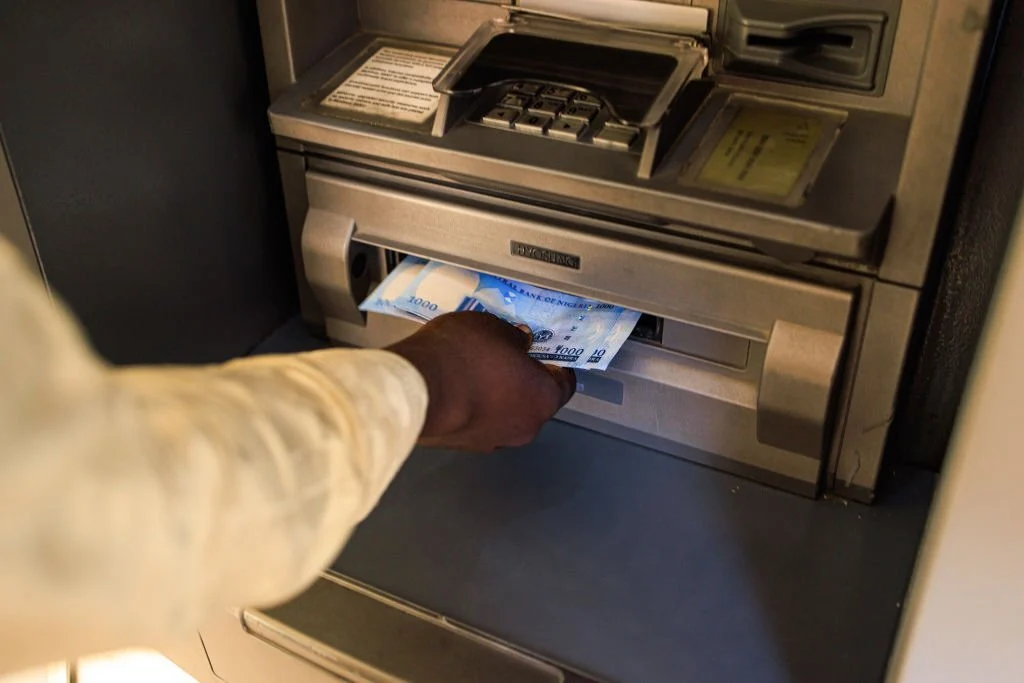On February 10, 2025, the Central Bank of Nigeria (CBN) announced an increase in Automated Teller Machine (ATM) withdrawal fees, set to take effect on March 1, 2025 as reported by Prime Business Africa. This policy change has caused widespread concern, particularly among small business owners who rely heavily on cash transactions. Under the new directive, withdrawals from ATMs outside a customer’s bank will incur a fee of N100 per N20,000 withdrawn.
Additionally, withdrawals from off-site ATMs—those located outside bank premises—will attract an extra surcharge of up to N500 per N20,000 withdrawal. This means that withdrawing N20,000 from an off-site ATM of another bank could cost up to N600 in fees.
Join our WhatsApp ChannelThe CBN justifies this move as a response to rising operational costs and a need to enhance the efficiency of ATM services in the banking sector. However, small business owners and economic experts warn that these increased charges could have detrimental effects on businesses that depend on cash transactions, potentially leading to higher operational costs and reduced profitability.
READ ALSO: CBN Announces New ATM Transaction Fees Effective March 1, Sparks Outrage Among Nigerians
Small Business Owners Voice Concerns
In Lagos, Nigeria’s commercial hub, small business owners are expressing alarm over the impending ATM withdrawal fee hikes. Many of these entrepreneurs operate in cash-intensive sectors and fear that the increased costs will erode their already thin profit margins.
Chinedu Okafor, a retail shop owner in Lagos Island, stated, “I withdraw cash daily to stock my shop. With these new charges, I’ll be spending much more just to access my own money. This will definitely affect my business.”
Similarly, Emmanuel Adadu, who runs a small restaurant in Isolo, expressed her frustration: “Most of my transactions are in cash because many of my customers prefer it. The increased ATM fees mean I’ll have to raise my prices to cover these extra costs, but I’m worried this will drive customers away.”
Adewunmi Bello, a Point of Sale (PoS) operator in Ajao Estate, Lagos State, highlighted another dimension: “As a PoS operator, I rely on ATM withdrawals to provide cash to my customers. With these new fees, I’ll have to increase my service charges, which won’t be good for business.”
Experts Warn of Broader Economic Implications
Economic analysts are also weighing in, suggesting that the increased ATM withdrawal fees could have ripple effects throughout the economy, particularly affecting small and medium-sized enterprises (SMEs).
Dr. Olufemi Adeyemi, an economist, noted, “The CBN’s decision to hike ATM withdrawal fees is likely to have unintended consequences. Small businesses, which are the backbone of our economy, operate on very tight margins. Additional banking costs could push some of these businesses into insolvency.”
Financial consultant, Mrs. Ngozi Eze, added, “This policy could discourage the use of banking services among small business owners, leading them to revert to cash-based operations outside the formal banking system. This would be a setback for financial inclusion efforts in the country.”
Furthermore, Mr. Tunde Bakare, a policy analyst, expressed concerns about the potential for increased cash handling risks: “With higher ATM withdrawal fees, businesses might opt to keep larger sums of cash on their premises to avoid frequent withdrawals. This increases the risk of theft and other security issues.”
Potential Shift Towards Informal Financial Practices
The increased ATM withdrawal fees may inadvertently encourage small business owners to seek alternative, informal financial practices to mitigate costs. This shift could undermine the formal banking sector and complicate monetary policy implementation.
Emmanuel Adadu mentioned, “If the bank charges become too much, I might start keeping cash at home or look for other ways to manage my money without involving the banks.”
This sentiment reflects a broader concern that the policy could lead to a decrease in bank patronage among small business owners, as they seek to avoid the additional costs associated with ATM withdrawals.
Calls for Policy Reconsideration
In light of these concerns, there have been calls for the CBN to reconsider or adjust the new ATM withdrawal fee policy to mitigate its impact on small businesses.
Dr. Adeyemi suggested, “The CBN could consider implementing a tiered fee structure that takes into account the withdrawal frequency and amounts typical of small businesses. This would help cushion the impact on these vital economic players.”
Mrs. Eze proposed, “Providing incentives for digital transactions could also be a way to reduce the reliance on cash. However, this requires improving the reliability and accessibility of digital payment platforms.”
The CBN’s increase in ATM withdrawal fees, intended to address operational costs and improve service efficiency, has raised significant concerns among small business owners in Nigeria. The potential for increased operational expenses, a shift towards informal financial practices, and broader economic implications suggest that a more nuanced approach may be necessary.
Balancing the needs of the banking sector with the realities faced by small businesses is crucial to ensure that policies do not inadvertently stifle the very enterprises that drive economic growth and provide employment opportunities across the nation.
Emmanuel Ochayi is a journalist. He is a graduate of the University of Lagos, School of first choice and the nations pride. Emmanuel is keen on exploring writing angles in different areas, including Business, climate change, politics, Education, and others.



















